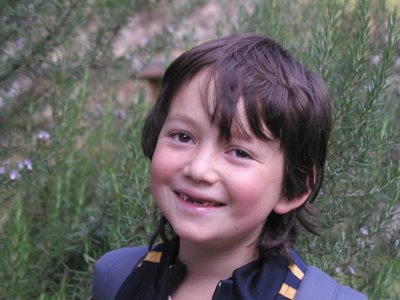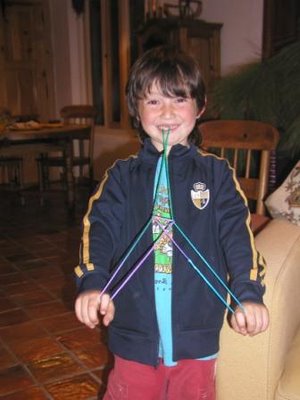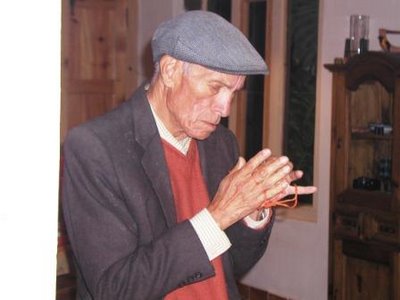
The monkey had two more teeth pulled the other day. He doesn't mess with them himself like I did as a child, so the dentist has to do it. At one point he had 3 rows of teeth on the bottom: a baby tooth that was almost falling out, an adult tooth coming in behind that, about where it was supposed to be, and a second adult tooth right behind with nowhere else to go. The boy is destined for orthodonture, probably beginning next year with a gadget that's supposed to slowly expand his jaw so that his adult teeth will fit. Fortunately, he loves his dentist, who has an wonderful way with the kiddies.
As a result of his situation, I have learned a new word in Spanish: "chimuelo." It refers to someone who is missing teeth. The equivalent in Guatemalan Spanish is "sholco," probably a word of Maya origins. I'm intrigued by Spanish words, without English equivalents, for people missing body parts. If you're missing an eye, you're "tuerto," lacking a leg, "tunco," and someone having a hand or arm fewer than most of us is "manco." I believe there's even a word for someone short an ear, but I guess I haven't had much occasion to use it as I can't recall what it might be.
In English we have to dance around the subject, and we tend to get uncomfortable talking about peoples' ethnicity, weight, etc. when we're giving a physical description. Spanish speakers (at least in Mexico and Central America) get right to the point. They'll have no trouble describing someone as "that short, fat guy with a limp." Physical epithets like "shorty" ("chaparro"), fatso ("gordo"), "curly" ("colocho," at least in Guatemala), and "darky" ("moreno" or simply "negro") become nicknames or endearments, (often with a diminutive in the later case, as in "mi gordita," "mi morenita," "mi viejita"). Why not call 'em like we see 'em? In the end, I think that helps us appreciate the differences among us instead of stigmatizing them, or at least to keep us honest.
We think our "sholquito" is as guapo as ever.







